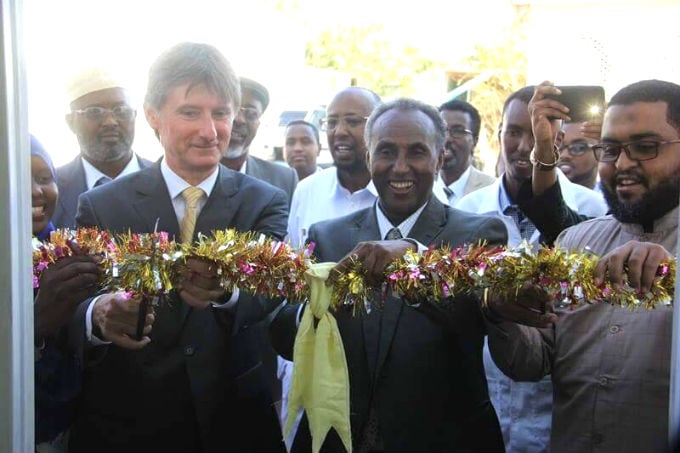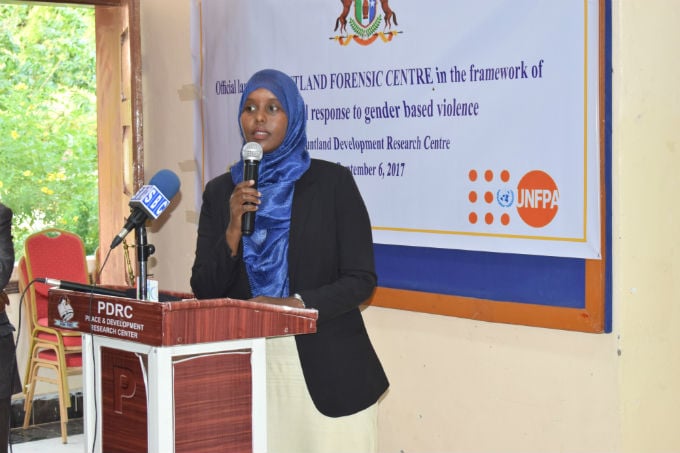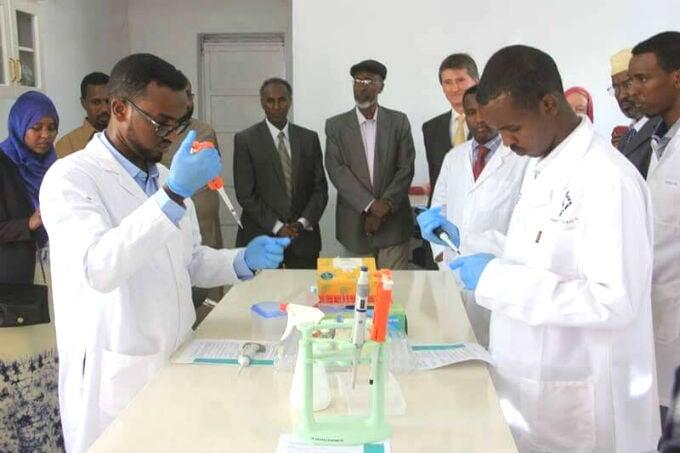Officer Kis Shamis Kabdi Bile, 32, is the only female police officer in charge of all internally displaced persons (IDPs) in Nugaal Region, Puntland. She is also the Deputy Director of Community Police for Puntland but she is generally frustrated with her work; many cases she handles involving sexual assault including rape rarely get concluded. “A lot of cases get dismissed from the courts because of lack of evidence and the victims rarely get any redress,” worried Ms. Da’ud.
There were 50,100 IDPs by midyear this year and 33 IDP sites in Nugaal, according to the United Nations Migration Agency. Somalia remains one of the largest and most complex emergencies in the world, as it still experiences protracted conflict in addition to natural disasters such as drought, floods and cyclones. This contributes to the high prevalence of gender-based violence (GBV), combined with lack of access to required support systems and services. In June alone 909 rape cases were reported across Somalia.
Ms. Da’ud is however hopeful that change has finally come and that survivors of sexual assault will be able to access justice. On September 6, the Puntland State of Somalia launched the Puntland Forensic Centre, the first advanced laboratory capable of producing forensic evidence that can be used in court proceedings particularly for sexual assault cases.
“The opening of the Forensic Centre is such a great development. This has been the missing part in the justice system as many perpetrators were getting away due to lack of evidence,” said Ms. Da’ud, adding: “The centre will be very helpful in providing forensic evidence for cases to be conclusive.”

The launch of the Puntland Forensic Centre
UNFPA Somalia is supporting the establishment and implementation of the Forensic Centre with funding from the Government of Sweden. The implementation of the project is integrated among a number of ministries in the Puntland State of Somalia and other stakeholders and these include Ministry of Health, Ministry of Justice, Religious Affairs and Rehabilitation and Ministry of Women Development and Family Affairs, GBV service providers and civil society.
The four ministers from the line ministries who attended the launching ceremony agreed that the new forensic centre is crucial in providing comprehensive support to survivors of sexual offenses, particularly on medical assistance, psychosocial support and legal aid. The ministers also agreed to strengthen efforts in coordination and oversight protocols, specifying roles and responsibilities of law enforcement agencies, the criminal justice system and the health sector.
Speaking at the launching ceremony of the centre a representative from the Swedish Embassy, Ms. Barni Nor said GBV, in particular sexual violence, is a devastating and harmful crime, which not only adversely affects the physical and psychosocial health of the sexual assault survivor, but also devastates each member of the family both in the short and long-term leading to long-lasting emotional and psychological trauma.
She said addressing GBV requires the collaborative and complementary efforts of the government, educational institutions, civil society and the wider community to make greater progress in introducing and strengthening systems for bringing justice to survivors.
“Sweden is proud to be the third largest donor in development assistance and second largest donor in the health sector. Our strong focus is on human rights, gender equality and women’s empowerment and we’re happy to have made the Puntland Forensic Centre a reality,” said Ms. Nor.

A representative from the Swedish Embassy Ms. Barni Nor speaks at the launch
UNFPA Somalia Representative Mr. Nikolai Botev said UNFPA is proud to be part of the launch of the Forensic Centre as part of its programmes that offer psychosocial assistance, medical treatment and rape kits to survivors, and promote the right of all women and girls to live free of violence and abuse. He also said that responding to violence against women in development and humanitarian settings is also a strategic priority for UNFPA.
“Our deepest gratitude to our donor; the Government of Sweden, which has supported this very important initiative. Sweden is a very reliable partner to the Somali people and to UNFPA as it continues to provide financial support in the collaborative efforts towards fighting GBV and in rebuilding the health system while saving the lives of mothers and children in Somalia,” said Mr. Botev.
The establishment of the forensic center comes in support of a the Sexual Offenses Law which was passed in Puntland at the end of 2016 and criminalizes all sexual crimes including gang rape, sexual exploitation and abuse, sexual harassment, sexual offenses involving the Internet and indecent exposure of genital organs in public places. The law also broadens the definition of consent, which is now designed to redress the balance in favor of survivors without prejudicing the perpetrators’ right to a fair trial to help juries reach just and fair decisions.
The enactment of the law on sexual offenses paves the way the use of forensic evidence as admissible evidence in court proceedings. The forensic lab initiative is part of large frameworks of multisectoral response to gender based violence including medical, psychosocial, legal and security support services. In addition to this, UNFPA also supports a center of excellence, Maatokaal Center, providing tailored services to GBV survivors.
###
For more information, please contact:
Ms. Pilirani Semu-Banda, Communications Specialist, UNFPA Somalia, Tel: +254 734500439; semu-banda@unfpa.org


